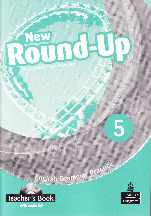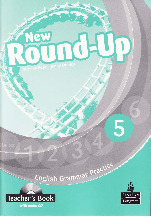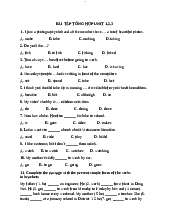







Preview text:
CÂU ĐIỀU KIỆN - CONDITIONAL SENTENCES A. LÝ THUYẾT
Câu điều kiện dùng để nêu lên một giả thiết về một sự việc, mà sự việc đó chỉ có thể xảy ra khi điều kiện được nói đến xảy ra.
Câu điều kiện gồm có hai phần (hai mệnh đề):
+ Mệnh đề chính (main clause) là mệnh đề chỉ kết quả
+ Mệnh đề if (if-clause) là mệnh đề phụ chỉ điều kiện
Hai mệnh đề trong câu điều kiện có thể đổi chỗ cho nhau được. Nếu muốn nhấn mạnh điều kiện, ta đặt
"if-clause" ở đầu câu và có dấu phẩy (,) ở giữa hai mệnh đề. Nếu muốn nhấn mạnh kết quả, ta đặt "main
clause" ở đầu và giữa hai mệnh đề không có dấu phẩy.
Các loại câu điều kiện
Có ba loại câu điều kiện: loại 1 (câu điều kiện có thật trong hiện tại hoặc tương lai), loại (câu điều kiện
không có thật trong hiện tại), loại 3 (câu điều kiện không có thật trong quá khứ.)
I, Câu điều kiện loại 1
Câu điều kiện loại 1 dùng diễn tả những sự việc có khả năng xảy ra trong tương lai.
If + S + V/ V(-s/-es), S + will/can + V Eg: If it rains, we will stay
at home. (Nếu trời mưa, chúng tôi sẽ ở nhà.)
If you try your best, you can achieve success. (Nếu bạn cố gắng hết sức, bạn có thể đạt được thành công.)
II, Câu điều kiện loại 2
Câu điều kiện loại 2 dùng để diễn tả những hành động, sự việc không thể xảy ra ở hiện tại. Điều kiện chỉ là
một giả thiết, một mong muốn trái ngược với thực tại.
If + S + V(-ed/P.I), S + would/could/might + V
Eg: If I won the lottery, I would travel around the world. (Nếu tôi trúng số, tôi sẽ đi du lịch vòng quanh thế giới.)
If it didn’t rain, we would go for a picnic. (Nếu không có mưa, chúng tôi sẽ đi dã ngoại.)
LƯU Ý: Nếu mệnh đề If sử dụng động từ “to be”, ta sẽ chia “to be” là “were” với tất cả các ngôi. Eg: If I were you, I would accept
their offer. (Nếu tôi là bạn, tôi sẽ chấp nhận lời đề nghị của họ.)
III, Câu điều kiện loại 3
Diễn tả một hành động, sự việc không có thật trong quá khứ. Điều kiện đó không thể xảy ra hoặc chỉ mang tính
ước muốn/ giả thiết trái với sự thật trong quá khứ.
If + S + had + V(-ed/P.II), S + would/could/might + have + V(-ED/P.II)
Eg: If she had studied harder, she would have passed the exam. (Nếu cô ấy học chăm chỉ hơn, cô ấy đã đậu kỳ thi.)
If they hadn’t missed the train, they would have arrived on time. (Nếu không bỏ lỡ chuyến tàu, họ đã đến đúng giờ.)
Các cấu trúc khác diễn tả điều kiện
1. Trong câu điều kiện có thật, có thể xảy ra ta có thể thay if = when/in case/ as long as/ so long
as/ provided that/ providing that/ only if/ on the condition (that) Ví dụ:
If you promise to return it by lunchtime, you can use my bike.
= In case/ as long as/ so long as/ provided that/ providing that/ only if/ on the condition (that) you promise
to return it by lunchtime, you can use my bike.
2. V/Don't + V+ O + or + S + will + V Ví dụ: Hurry up or you will miss the last bus.
(= If you don't hurry up, you will miss the last bus.) Don't eat too much or you will be overweight.
(= If you eat too much, you will be overweight.)
3. Unless = If... not (trừ khi)
"Unless" luôn đi với mệnh đề khẳng định = "if" + mệnh đề phủ định Ví dụ: If you don't study hard, you won't pass the exam.
= Unless you study hard, you won't pass the exam.
If you call her right now, you will get some information.
= Unless you call her right now, you won't get any information.
Kết hợp câu dùng câu điều kiện
Để kết hợp câu bằng câu điều kiện ta thực hiện theo các quy tắc sau: Quy tắc 1:
- Nếu hai mệnh đề được kết nối bằng liên từ "so" thì ta viết mệnh đề điều kiện bằng mệnh đề trước "so."
- Nếu hai mệnh đề được kết nối bằng liên từ "because” thì ta viết mệnh đề điều kiện bằng mệnh đề sau "because."
- Nếu giữa hai câu có dấu chấm (.), dấu chấm phấy (;) hoặc dấu gạch ngang (-) thì ta viết mệnh đề điều
kiện bằng câu thứ nhất. Quy tắc 2:
- Nếu động từ ở tương lai ta viết bằng điều kiện loại 1.
- Nếu động từ ở hiện tại ta viết bằng điều kiện loại 2.
- Nếu động từ ở quá khứ ta viết bằng điều kiện loại 3. Quy tắc 3:
- Thể của mệnh đề trong câu điều kiện luôn ngược với câu ban đầu. Ví dụ:
- The wind is blowing hard, so we won't take the boat out for a ride.
If …………………………………………………………………….. BÀI TẬP ÁP DỤNG
Exercise 1: Kết hợp câu dùng câu điều kiện
1. He can't go out because he has to study for his exam.
If ................................................................................................................................................................
2. He smokes too much; that's why he can't get rid of his cough.
If ................................................................................................................................................................
3. He will pay me tonight; I will have enough money to buy a car.
If ................................................................................................................................................................
4. Leave me alone or I'll call the police.
If ................................................................................................................................................................
5. He didn't revise all his lessons, so he failed the exam.
If ................................................................................................................................................................
6. Martin failed his driving test last week because he was very nervous.
If ................................................................................................................................................................
Exercise 2: Chọn phương án đúng 1.
ten minutes earlier, you would have got a better seat. A. Were you arrived B. If you arrived
C. If you hadn't arrived D. If you had arrived
2. If she a car, she would go out in the evening. A. have B has C. has had D. had
3. Without your help, I the technical problem with my computer the other day. A. can't solve
B. couldn't have solved C. Couldn't solve D. Weren't solved
4. The joke would not be funny if it into French.
A. has been translated B. be translated
C. was be translated D. were translated
5. We on the beach now if we hadn't missed the plane A. might have lain B. would lie C. could be lying D. would have lain
6. I think you should stop smoking.
A. If I am you, I will stop smoking.
B. If I had been you, I would stop smoking,
C. If I were you, I would stop smoking.
D. If I were you, I will stop smoking.
7. If he had been more careful, he A. won't fall B. wouldn't fall
C. wouldn't have fallen D. would haven't fallen
8. His health would be improved
A. if he continued to smoke heavily
B. unless he stopped smoking heavily C. if he gave up smoking
D. if only he doesn't smoke any more.
9. He was driving very fast because he didn't know the road was icy.
A. If he knew the road was icy, he wouldn't drive so fast.
B. He hadn't been driving very fast if he would have known the road was icy.
C. If he had known the road was icy, he wouldn't have been driving so fast.
D. He wasn't driving very fast if he would know the road was icy.
10. I didn’t know that you were at home. I didn't visit you.
A. If I knew that you were at home, I would visit you.
B. If I had known that you were at home, I would have visited you.
C. If I knew that you had been at home, I would have visited you.
D. If I would know that you were at home, I visited you.
Exercise 3: Tìm lỗi sai và sửa
1. If I am 10 centimeters taller, I would play basketball. A B C D
2. If I had realized that the traffic lights were red, I would stop. A B C D 3. What
you would do if you could speak French well? A B C D
4. If I had known he is not at home, I wouldn't have gone all the way to his house. A B C D
5. If had I known you were in financial difficulty, I would have helped you. A B C D
6. If I were you, I will go to the dentist's and have the tooth checked. A B C D
7. If you hadn't left the car unlocked, it wouldn't have be stolen. A B C D 8. If
the weather is fine today, we would go to the beach. A B C D
9. If you will study harder, you will surely pass the coming exams with good results. A B C D
10. If you will study harder, you will surely pass the coming exams with good results. A B C D




